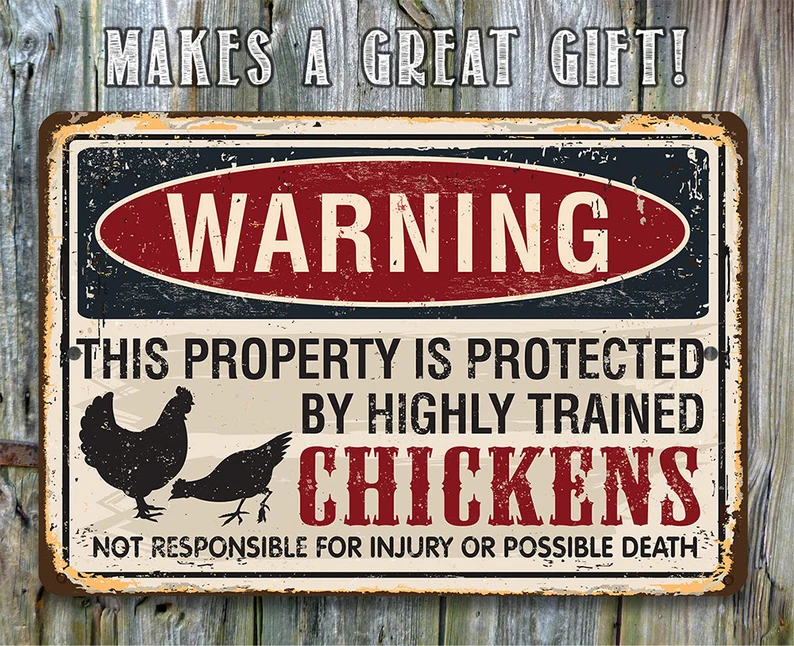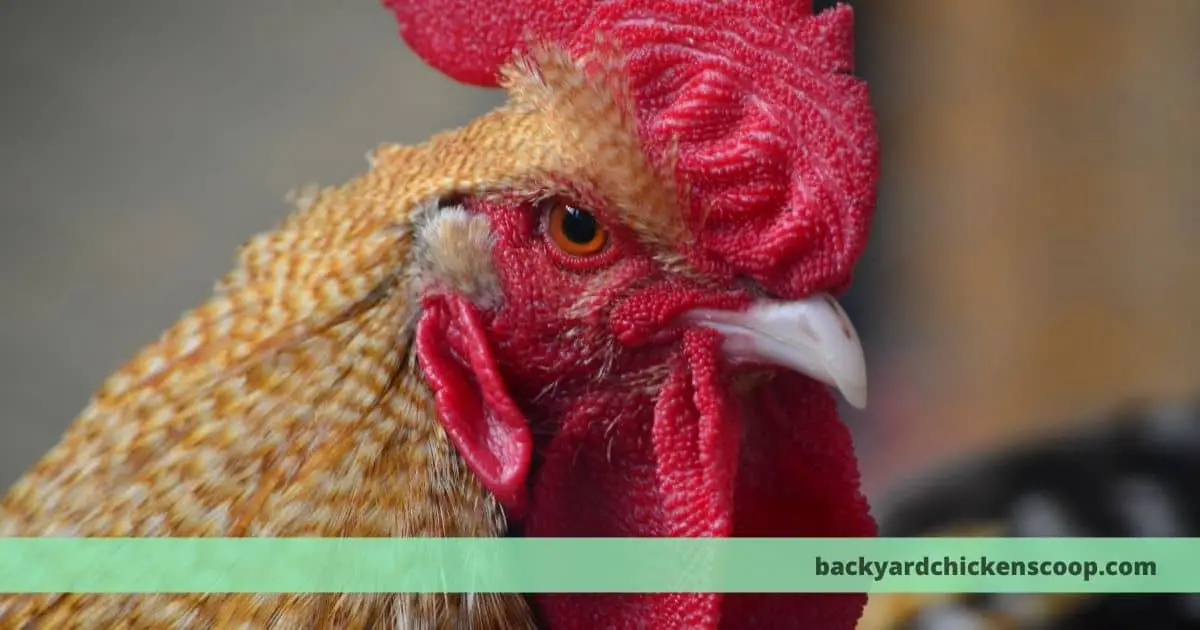Having a chicken faint or die after mating is worrying. The first time I saw this, I was very surprised and of course, worried. So I did a bit of studying.
Chickens can die after mating because it’s a physically straining and exhaustive exercise. The rooster can inflict wounds on the chick and exhaust her physically. If the chicken is affected by diseases, heat or dehydration she will be at high risk of dying from mating.
There are many instances where people have reported that their chicken died soon after mating. When the days are longer with rising temperatures, the flock starts feeling pulled during the mating season. Roosters chasing the hens around the yard gives you an indication that baby chicks are on the way.
But, why do chickens die after mating?
Well, it’s not an easy question to answer because many aspects need to be considered. And, we have to look through the whole process of mating. So, is mating worth dying for? Let’s dig in straight to find out the exact reason for this kind of behaviour.
Expert Insight from My Vet
Concerning the phenomenon of roosters fainting after mating, it’s important to understand that this is not a common behaviour for all roosters. When it does occur, it might be attributed to physical exertion or stress. Mating can be a demanding activity for roosters, and in some cases, especially if the rooster has health issues or is not in optimal physical condition, it could lead to temporary fainting spells.
Regarding the question of chickens dying after mating, this is not a typical outcome. Healthy chickens, both hens and roosters, usually do not experience severe adverse effects from mating.
However, aggressive mating behaviour observed in some roosters can occasionally lead to injuries or stress for the hens, which might necessitate veterinary attention.
Is it Necessary for Chickens to Mate?
To begin with, mating is a kind of serious occupation for chickens. And, only the strong ones can survive. Therefore, many of the behaviours are driven by this fact. There are certain mechanics of mating when it comes to chickens.
While most people are unaware of how chickens get involved in mating. Or, why would they do that in the first place? Even if you are involved in the business of raising and breeding birds, you should know the process.
And, learning about a few things could be helpful while you are raising them in your backyard. Being on the farm and watching your chickens mate is not an uncommon sight. However, chickens mate so much that sometimes it might create serious issues with your hens.
The situation gets much worse if there are many roosters around. The first thing you should know is that hens don’t need roosters to lay eggs. It is a natural phenomenon after they attain the right age.
Ad: I thought you’d like these…


Why do Roosters Faint After Mating?
The mating can also be physically straining on the rooster. So much that it faints.
When a rooster faints after mating it’s a sign of exhaustion. If the rooster was previously ill or stressed the physical string during the mating can cause him to faint or even die. These can be a sign to you that some things need to change in your flock – physically or mentally.
The act of mating, while natural, requires a significant expenditure of energy. In cases where a rooster is already compromised, whether due to prior illness or environmental stress factors, this additional exertion can be overwhelming. Fainting, in this context, is a physiological response to overexertion.
Moreover, such occurrences should not be taken lightly as they serve as critical indicators of the overall well-being of your flock. It suggests a need for a thorough evaluation of both the physical and mental health conditions of your birds. Factors like nutrition, living conditions, and even the social dynamics within the flock play a vital role in their health.
In addressing these issues, consider both immediate and long-term strategies. Ensuring that your roosters have adequate rest, a nutritious diet, and a stress-free environment can significantly mitigate these incidents. Additionally, regular health check-ups are essential to preemptively identify and address any underlying health concerns.
Chicken Health Mastery
Click to See Our Complete Checklist for Ensuring a Healthy, Happy Flock
…have you missed anything?
Courtship and Mating Behaviours of Chickens
The level of hormones increases with bright daylight during the spring season. That’s when the hens try to reach out for the right rooster. So, what does that mean? The right rooster should have nice feathers with bright red wattles and a comb.
During this season, roosters go into overdrive mode. And, mating becomes his obsession and occupation. The roosters try to impress the hens in every possible way. After selecting the right chicken, a little court dance happens.
The dance is to show his interest. During the event, other roosters might attempt to get along with the hens in the flock. Sometimes they are chased away and sometimes they get to mate by using devious tactics.
How do Chickens Mate?
Watching your chickens mate could lead to some fun-filled moments. Hens will mate when they feel they are good and rooster dancing doesn’t always count. Sometimes, hens never submit to roosters.
When it is time, she goes into a squatting position and signals to the rooster. Her head and body will be lowered to the ground. And, her wings slightly stretched to the sides. That way, the rooster can maintain balance.
The anatomy of a rooster is a complex one. They have a small bump called papilla located inside the cloaca. The rooster hops on the hen’s back. He should position himself so that both their cloacas can come in contact with each other.
The hen inverts her vent, while the rooster transfers the semen. What’s interesting is that it takes more than 30 seconds to finish everything. After that, the hen rises, shakes her feathers, and walks away.
The semen can live for up to a month. So, even when the chickens mate, chances are that they might not produce fertile eggs immediately. There are reports that even after getting rid of the rooster for about a month, the hens produced fertile eggs.
It’s a Social Thing for Chickens to Mate
Sometimes you might observe that chickens mate not only to reproduce. They do so to establish a hierarchy. When you have many roosters compared to the hens, there are chances of mating with the hen at regular intervals.
This situation could be tricky and even lead to the death of hens. Female chickens are more vulnerable to problems when they mate too much.
Things to Look Out for When Your Chickens Mate
When it is about chicken mating, you should be aware of certain things. The first thing is to make sure that your hens are not overly bothered. You can easily find out whether there is a problem by observing a few things.
This includes excessive missing features or broken feathers all over their back. It means, they are mating too often and the roosters are causing much damage to their body. Check your hens regularly for other signs of a wound.
On many occasions, you will notice that even if the hen has serious injuries they won’t give you hints. It is good to check their heads and make sure there are no sores. The roosters sometimes grab the hen’s head next to the comb.
This is an area where you can find some raw wounds. If you have many roosters, separate them. Having successive mating sessions with different roosters can cause serious back injury to your chicken.
It is normal for chickens to mate. But you should ensure that everything is safe. If not, a day comes when you find them dead right after a mating session.
How to Care For Your Chickens
To stop over-mating, shift the hens to another place for a few weeks. As such, it allows the hens to recover from the injury. Inexperienced roosters can cause a lot of damage to some hens. So, after they mate, check your hen for open wounds that need immediate attention.
You can use a suitable ointment or balm to treat open wounds. Also, keep her isolated until the wounds are healed. If there are large skin tears, you should consult a veterinarian. Strong antibiotics can bring relief to your hen.
If this continues even after healing, you can use a hen saddle. It saves their skin and feathers. Roosters can do a lot of harm with their spurs. So, trim them before allowing them to interact with the hens.
When you are breeding chickens, your primary focus should be on their welfare. Keep an eye on all the safety precautions. That way, your chickens won’t die after mating.
Chicken Health Mastery
Click to See Our Complete Checklist for Ensuring a Healthy, Happy Flock
…have you missed anything?


